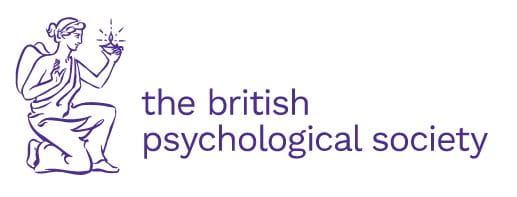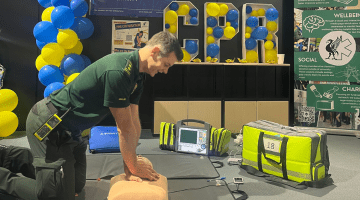About this course
Meet NICE guidelines for supporting those with depression and anxiety disorders on LJMU's Improving Access to Psychological Therapies in Primary Care course.
- Study to meet National Institute for Health and Clinical Excellence (NICE) guidelines for supporting people suffering from depression and anxiety disorders
- Follow a curriculum that combines theoretical learning and practical experience and is strongly influenced by student feedback
- Enjoy exceptional levels of learner support
- Benefit from excellent training facilities and strong links with local service providers
- New Apprenticeship route also available
This course helps Primary Care Trusts to implement National Institute for Health and Clinical Excellence (NICE) guidelines for people suffering from depression and anxiety disorders. It trains Low Intensity workers to assess and support patients in the self-management of their recovery.
With common mental health problems accounting for a third of all primary care consultations in the UK, this training not only reduces the impact on individuals, families and communities but also on key resources.
The programme is built around the bio-psychosocial model of mental health and wellbeing and will provide you with the knowledge and skills to: work within primary care settings and deliver a range of low intensity, evidence-based interventions. These include: cognitive behavioural interventions; collaborative case management; social interventions (including employment and occupational) and structured pharmacological support.
Course modules
Discover the building blocks of your programme
Further guidance on modules
Modules are designated core or optional in accordance with professional body requirements, as applicable, and LJMU’s Academic Framework Regulations. Whilst you are required to study core modules, optional modules provide you with an element of choice. Their availability may vary and will be subject to meeting minimum student numbers.
Where changes to modules are necessary these will be communicated as appropriate.
Core modules
Engagement and Assessment of Patients with Common Mental Health Problems
20 credits
20 credits
This module will equip you with a good understanding of the incidence, prevalence and presentation of common mental health problems and evidenced-based treatment choices. Skills teaching will develop your core ‘common factors’ competencies of active listening, engagement, alliance building, patient-centred information gathering, information giving and shared decision making.
Cultural competence for Psychological Wellbeing Practitioners will aim to develop your ability to recognise your own reaction to people who are perceived to be different and values and beliefs about the issue of difference, so as to be able to work effectively with them.
Values, Diversity and Context
20 credits
20 credits
This module aims to prepare Psychological Wellbeing Practitioners (PWPs) with the necessary knowledge, attitudes, and competencies for inclusive, recovery-focused care. It addresses power dynamics, diversity, and equal opportunities, emphasizing active patient participation. PWPs will learn about diversity and inclusion, preparing them for high-volume, stepped care environments. Skills teaching focuses on clinical management, liaison, and decision-making, addressing complex patient needs.
Evidence Based Low Intensity Treatments for Common Mental Health Disorders
20 credits
20 credits
This module teaches Psychological Well Being Practitioners (PWPs) to provide support for low-intensity psychological and pharmacological treatments for common mental health issues, emphasizing patient self-management and behaviour change models. Trainees develop knowledge and competence in delivering these treatments and managing patients, including families and carers. They also learn to support medication adherence through various communication methods and understand the therapeutic support process, including risk assessment and management.
Professional accreditation/links
LJMU's Improving Access to Psychological Therapies PgCert is accredited by the British Psychological Society, meeting the Psychological Wellbeing Practitioners Accreditation 2014.

Your Learning Experience
An insight into teaching on your course
Study hours
There is one day a week timetabled study supported by an equal amount of self-guided study (a university directed learning day in service) for semester 1. For semester 2 students will alternate each week between timetabled study and university directed learning day in services.
Teaching methods
The course uses different methods of learning, including lectures from LJMU staff, past students and visiting experts as well as seminars, case discussion groups, experiential learning session, reflective practice, formative skills assessment, practice-based learning, guided reading and independent study.
Throughout the programme you will be supported by: the Programme Leader, a Personal Tutor who will monitor your progress, module and route leaders for academic support, a Practice-based Supervisor to facilitate and support learning opportunities in clinical practice and the programme team who will provide administrative guidance.
Applied learning
During your studies, you will be employed in a primary care setting on a full-time basis. In addition, you will be able to implement the skills you have acquired in practice on an ongoing basis.
You will gain a better understanding of the concepts of mental health, mental illness and various diagnostic tools. You will learn to help patients manage their emotional distress and disturbance, understanding their perspective and their attitude to treatment.
You will discover the importance of building and maintaining good patient relationships, managing the emotional content of interactions, effectively communicating treatment choices and dealing with needs sensitively.
You will use standard symptom assessment tools, maintain effective records, recognise typical symptom patterns, identify any risks that patients pose and work with other agencies to get the best possible outcome for your patients.
How learning is monitored on your programme
To cater for the wide-ranging content of our courses and the varied learning preferences of our students, we offer a range of assessment methods on each programme.
Where you will study
What you can expect from your School
Situated in the City Campus, the School of Nursing and Allied Health works with a wide range of health and social care organisations to design, deliver and evaluate a dynamic suite of postgraduate programmes. In addition to specialist facilities, you will find high quality meeting and seminar rooms and lecture theatres, the Avril Robarts Library, plus a large cafe, IT facilities and social spaces.
Course tutors

Karen Rea
- Programme leader
Career paths
Further your career prospects
LJMU has an excellent employability record with 96% (HESA 2018) of our postgraduates in work or further study six months after graduation. Our applied learning techniques and strong industry connections ensure our students are fully prepared for the workplace on graduation and understand how to apply their knowledge in a real world context.
The engagement, assessment, decision-making and evaluation skills acquired on the programme, will allow you to work as a Mental Health Practitioner in a primary health setting. Past graduates have also gone on to work in psychological wellbeing, clinical psychology and high intensity therapy. There is also the option to undertake further study in this area.
Fees and funding
Tuition Fees:
Fees
The fees quoted at the top of this page cover registration, tuition, supervision, assessment and examinations as well as:
- library membership with access to printed, multimedia and digital resources
- access to programme-appropriate software
- library and student IT support
- free on-campus wifi via eduroam
Additional costs
Although not all of the following are compulsory/relevant, you should keep in mind the costs of:
- accommodation and living expenditure
- books (should you wish to have your own copies)
- printing, photocopying and stationery
- PC/laptop (should you prefer to purchase your own for independent study and online learning activities)
- mobile phone/tablet (to access online services)
- field trips (travel and activity costs)
- placements (travel expenses and living costs)
- student visas (international students only)
- study abroad opportunities (travel costs, accommodation, visas and immunisations)
- academic conferences (travel costs)
- professional-body membership
- graduation (gown hire etc)
Funding
There are many ways to fund postgraduate study for home and international students. From loans to International Scholarships and subject-specific funding, you’ll find all of the information you need on our specialist postgraduate funding pages.
Please be aware that the UK’s departure from the EU may affect your tuition fees. Learn more about your fee status and which tuition fees are relevant to you.
Entry requirements
You will need:
Qualification requirements
Undergraduate degree
- an honours degree (minimum 2:2) or equivalent in a health or social care related subject from a recognised institution
- an approved and relevant postgraduate qualification (minimum Postgraduate Diploma or equivalent - 120 credits at Masters Level)
- evidence of previous advanced study, research or professional experience, which the University accepts as qualifying the candidate for entry
Additional requirements
-
Relevant work experience
- to be employed as a psychological wellbeing practitioner trainee within a primary care setting
-
Interview required
- All students are required to undertake a joint academic and service interview
How to apply
Securing your place at LJMU
To apply for this programme, you are required to complete an LJMU online application form. You will need to provide details of previous qualifications and a personal statement outlining why you wish to study this programme.
External applications are made through NHS jobs direct in response to recruitment drives. The selection and recruitment process is jointly undertaken by both the service and LJMU IAPT teaching team.
Your university life
From accommodation and academic support to clubs and societies. Find out what LJMU has to offer.
Talk to our students
Connect with a current LJMU student for advice and guidance on university life, courses and more.
See what our students are saying
At LJMU we want you to know you’re making the right choice by studying with us. You can see what our students are saying about their experience with us through their reviews on the following websites:
Related Links
News and views
Browse through the latest news and stories from the university


.png)







The University reserves the right to withdraw or make alterations to a course and facilities if necessary; this may be because such changes are deemed to be beneficial to students, are minor in nature and unlikely to impact negatively upon students or become necessary due to circumstances beyond the control of the University. Where this does happen, the University operates a policy of consultation, advice and support to all enrolled students affected by the proposed change to their course or module.









